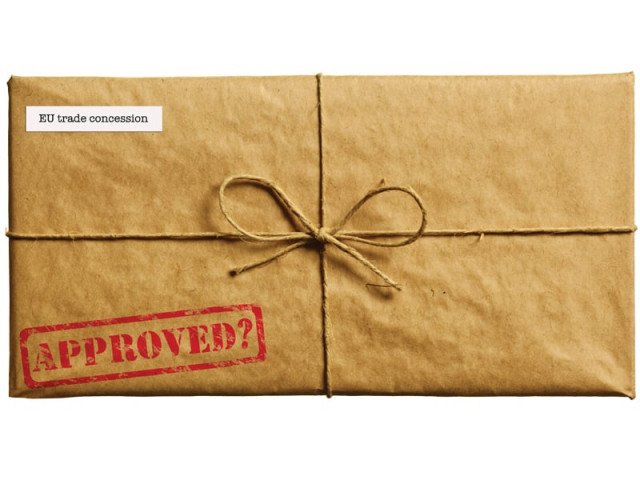EU concession package: Commerce ministry gives wrong facts about approval
Commerce ministry lied by claiming that the EU parliament has cleared trade concessions for Pakistan.

The commerce ministry has lied to the nation by claiming that the European Union parliament has cleared trade concessions for Pakistan, contrary to the fact that it has only supported the plan and referred the draft back with amendments to the Committee on International Trade for further negotiations.
The ministry of commerce issued a press release on Friday last week that was published by leading newspapers. The press release claimed “the plenary of the European Union parliament on Friday cleared the Autonomous Trade Concessions for Pakistan.” It further read “the only hurdle now remains the World Trade Organisation (WTO) waiver.”
To help Pakistan recover from losses caused by last summer floods, EU in October last year offered to reduce duty on 75 products imported from Pakistan for a period of three years.
The claim made by the commerce ministry negates facts. The European parliament had actually introduced amendments to the original draft by virtue of which the impact of trade concessions would be significantly reduced.
A correspondence of EU states “MEPs voted on all the amendments to the regulation, but decided to postpone the final vote and refer the report back to the committee (on international trade). This gives parliament a chance to start negotiations with the Council to reach a first-reading agreement in the next few months.”
When approached by phone on Monday, a commerce ministry spokesman admitted that the “EU parliament approval is not final.” According to commerce ministry officials in Brussels, he said, the parliamentarians from southern Europe have suggested amendments but these amendments cannot yet be treated as final.
The EU parliament on Monday last week introduced a major amendment to the deal which will reduce the period of concessions from three years to just one year with an option to extend it for another year. The extension is also linked with a study that would determine whether the concessions have impacted the local industry. Limiting the deal to one year may erode the benefits for Pakistani exporters.
Even Neelie Kroes, Vice-President of the European Commission and a member of parliament while debating on the trade package on May 9, said, “to limit the duration even further to one year would erode the advantages of the autonomous trade preferences measure, and they would become meaningless.”
The package is already lying with the World Trade Organisation General Council due to opposition by India, Bangladesh, Sri Lanka, Vietnam and Peru. But the major stumbling block is India.
The amendments introduced by the EU parliament has put Pakistan’s trade diplomacy on a test that it might not be able to go through, bearing in mind the authorities’ inability to convince only neighbouring competing nations.
The EU parliament also introduced amendments for fixing quotas for various products instead of allowing duty-free import of certain textile products and inserted a clause authorising EU to invoke the deal any time, provided the duty-free imports have impacted the local industry.
In November 2010, the EU Council reached an agreement with European nations opposing the deal with Pakistan. The Council made seven textile products subject to quotas instead of duty-free import. The May 9 amendments have called for bringing more items under the quota regime rather than full liberalisation.
Neelie Kroes also raised this issue on May 9. He said that the November compromise was not reflected in the European parliament amendments, and as a result of the consultation with WTO members it might be necessary to subject a few more products to tariff rate quotas.
European parliament members voted to introduce a clause in the regulation that would tie preferential trade to Pakistan’s human rights record.
Published in The Express Tribune, May 17th, 2011.



















COMMENTS
Comments are moderated and generally will be posted if they are on-topic and not abusive.
For more information, please see our Comments FAQ